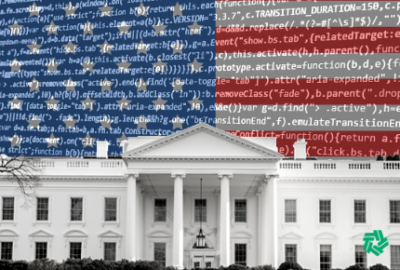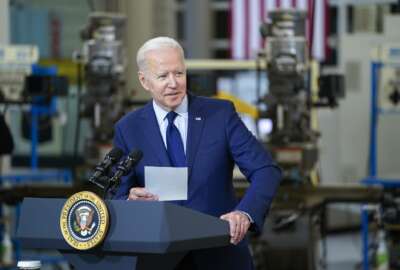Two small agencies win awards from Technology Modernization Fund board
The Technology Modernization Fund made its first awards since September and only second set of awards from the $1 billion Congress allocated in the 2021 America...
The long-awaited second tranche of Technology Modernization Fund awards from the $1 billion in the American Rescue Act Plan went to two small agencies focused on modernizing public facing systems.
The TMF Board “loaned out” a total of $9 million to the Postal Regulatory Commission and the Selective Service System.
“This funding will allow the PRC to modernize internal and public-facing tools, and give their customers a better digital experience. And it will allow SSS to move quickly to scale technical operations to meet the nation’s needs through a cloud-first software and data architecture that protects the data of millions of customers,” said Clare Martorana, the federal chief information officer and chairwoman of the board, in a statement.
The Selective Service System received more than $5.9 million, including an initial transfer of more than $1.8 million, to modernize its registration, compliance and verification (RCV) software.
The SSS will migrate RCV to a software and data architecture in the cloud, enhance its cybersecurity protection and performance capabilities and improve the application’s public-facing user experience, according to the description on the TMF website.
The PRC received a loan of more than $2.6 million, including an initial transfer of more than $2 million.
The PRC will use the money to modernize its website, docket and data analysis tools. The commission hopes the modern systems will make it easier for the public to access and participate in its proceedings and give its staff the resources to provide transparent and effective oversight of the U.S. Postal Service’s operations.
The money will accelerate the PRC’s ability to move applications to the cloud and develop three platforms: a new public-facing website, a modern docket system and a data management system.
“The operational benefits of this project include faster and more thorough analysis of data, a more navigable and user-friendly website and reduced operation and maintenance costs,” the TMF website stated.
More proposals than money available
These are the first two awards under the TMF since September when OMB and the board handed out $311 million to four agencies mostly focused on cybersecurity projects.
The board received $1 billion in March 2021 from the American Rescue Act Plan and Congress and agencies were getting impatient for awards. Part of the reason is for both the delay and the impatience is the board received 113 project proposals for a total of more than $2.3 billion, the Government Accountability Office reported in December.
Rep. Gerry Connolly (D-Va.), chairman of the Oversight and Reform Subcommittee on Operations, applauded the board’s awards.
“The pandemic has demonstrated that if the technology infrastructure for delivering federal assistance is unreliable or unavailable, then no amount of policy or expertise, political will, or subject matter expertise will help our constituents in need,” Connolly said in a statement. “These IT investments will modernize legacy systems and help us craft the workforce we need to drive government into the digital government future.”
Since Congress created the TMF in the Modernizing Government Technology Act in 2017, the board has received $1.18 billion from Congress and awarded or loaned out $409 million across 19 projects. This leaves about $766 million still available for the board to hand out in the coming months.
The Biden administration requested another $500 million in its fiscal 2022 budget request. So far, Congress has been less generous with the House offering $50 million in its version of the omnibus spending bill, while the Senate Appropriations Committee zeroing out all funding for 2022.
The Biden administration is expected to release its fiscal 2023 budget request in the coming weeks that will undoubtedly include another large request for the TMF.
“Hundreds of millions of Americans interact with the U.S. Postal Service and Selective Service, and these investments in the U.S. Postal Regulatory Commission and Selective Service System will make those interactions easier, more responsive, and more secure,” said Robin Carnahan, the administrator of the General Services Administration, in a statement.
Copyright © 2024 Federal News Network. All rights reserved. This website is not intended for users located within the European Economic Area.
Jason Miller is executive editor of Federal News Network and directs news coverage on the people, policy and programs of the federal government.
Follow @jmillerWFED





